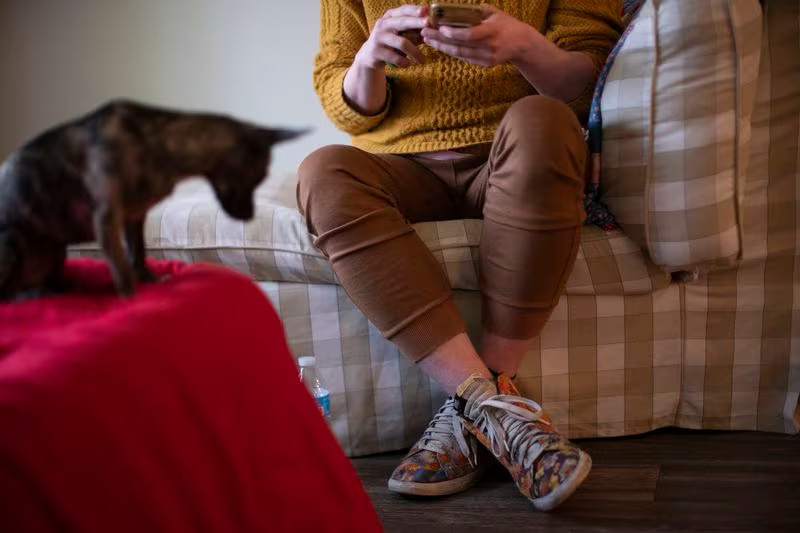Multnomah County needs more LGBTQ+ homeless shelters and housing services, according to a report released Monday that was commissioned by the county-city Joint Office of Homeless Services.
The report, written by a group of Portland area organizations that support the LGBTQ+ community, found that there aren’t enough culturally specific services in Portland to meet the needs of LGBTQ+ people, who disproportionately experience homelessness
The joint office is eager to address gaps in service, said county spokesperson Julia Comnes.
We are “working internally with the LGBTQIA2S+ Housing Collaborative to implement and prioritize the recommendations,” Comnes said.
The report said data on LGBTQ+ people experiencing homelessness in the Portland area is incomplete. The 2022 federally mandated point-in-time count found that 1.4% of people experiencing homelessness in the county identified as transgender and 1.7% identified as a gender that is not singularly female or male.

Nationally, 16.9% of “sexual minority adults” have experienced homelessness – more than double the percentage of the overall population, the report said, citing a 2020 University of California, Los Angeles study.
The report recommends the county improve ways to collect sexual-orientation data to better understand the need in the community and to also incorporate sexual-orientation and gender identity into county housing assessments. Certain demographics get prioritized for housing, such as veterans. The report recommends that sexual orientation and gender identity be considered when determining which applicants need housing most.
The report also says that the county should provide more LGBTQ+ specific housing programs and homelessness services.
While there are youth-specific LGBTQ+ housing services in Portland, including Outside In and New Avenues for Youth, adults don’t have access to the same resources, the report said.
As part of the county’s full shelter system, there are two LGBTQ+ tiny home villages – the Queer Affinity Village, which was created by the city of Portland, and Parkrose Community Village, created by the small nonprofit WeShine.
However, the group regards those shelters as transitional housing since people are required to wait for an opening and then receive supportive care while they work on transitioning to housing. The report recommends creating low-barrier shelters that are specific to LGBTQ+ individuals because individuals often report feeling uncomfortable or fearful at traditional emergency shelters.
“Many local emergency shelters are gender binary, which discourages transgender and non-binary people from accessing them,” the report said.
Comnes said there are no emergency shelter beds currently funded by the joint-office that are reserved specifically for LGBTQ+ individuals.
While there are some other service organizations, including eviction prevention nonprofits and Transition Projects’ permanent housing program for transgender and non-binary people, the capacity is too limited to meet the need, the report said.
The report suggests looking to other regions in the country that have created unique programs to support the LGBTQ+ population.
Log Angeles recently funded a transitional shelter for transgender Latinas and San Francisco pledged $7 million to end transgender homelessness by 2027, the report said.
“Despite Oregon and Portland’s pride flag waving reputation, our community is not well prepared to welcome these newcomers, many of whom face barriers to housing and other supports,” the report said.
Nicole Hayden reports on homelessness for The Oregonian/OregonLive. She can be reached at nhayden@oregonian.com.


